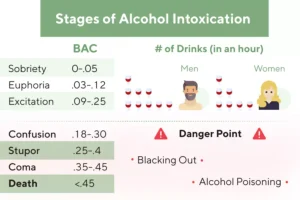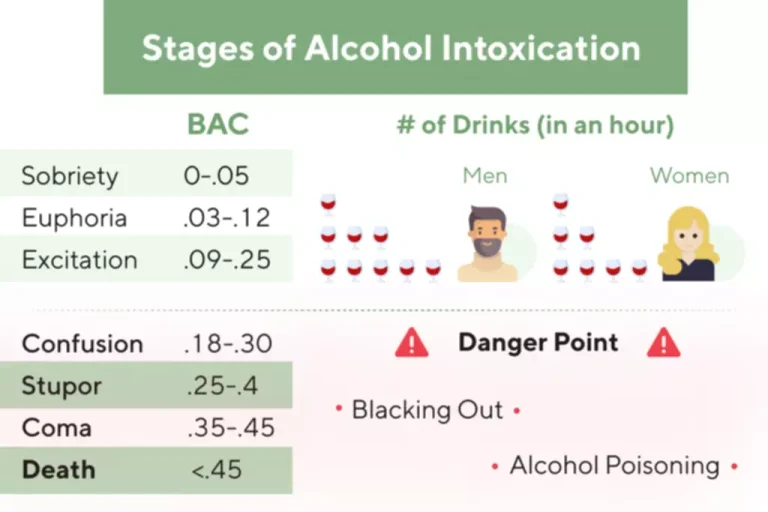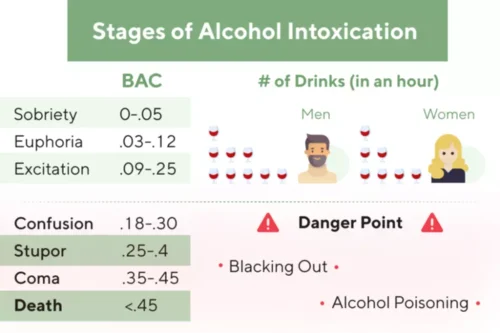Alcohol Withdrawal Seizures Causes, Symptoms, And Treatment

Free by the Sea is a treatment facility located in the state of Washington on 5 acres of waterfront property. We have professional relationships with detox centers in the surrounding area. After detox, our serene setting and our staff of experienced, compassionate professionals can offer you the rest and rehab that you so desperately need and deserve. Because addiction affects every member of the family in some way, family therapy is recommended to help mend relationships and educate family members about the disease of addiction. It’s also recommended that family members engage in some type of therapy or support to help them take care of themselves and help them return to “normal” family roles. Behavioral therapies such as cognitive-behavioral therapy (CBT) and dialectical behavior therapy (DBT) are effective in helping people understand how their harmful thinking patterns are harming their lives.
- As a response to chronic alcohol misuse or abuse, your body will adapt by tilting your chemical balance toward more excitatory chemicals.
- By avoiding heavy and binge drinking, individuals can significantly reduce their risk of experiencing seizures related to alcohol withdrawal.
- Understanding the difference between panic attacks, epileptic seizures, and PNES is crucial to finding the right treatment.
- Knowing when you are most at risk for an alcohol withdrawal seizure can help you take the right precautions and get medical care right away.
Symptoms of a Panic Attack:
However, certain GABAA-receptor isoforms are exquisitely sensitive to alcohol so that functionally relevant effects can occur at concentrations within the intoxicating range (32,33). If you or someone you love are struggling with alcohol use, getting professional help is essential for safe and successful detox and recovery. Support resources, like therapy and recovery groups, can give you guidance and encouragement. Programs like Alcoholics Anonymous or SMART Recovery create a sense of community and accountability. Professional help through counseling or recovery coaching can also address the underlying causes of alcohol dependence.
Previous Withdrawal History
Recognizing the importance of professional help, knowing the progression of symptoms, and being aware of the risks and complications are all crucial steps toward a successful recovery. After the first month of sobriety, its advantages become increasingly evident. With appropriate treatment and support, full recovery from alcohol withdrawal can be achieved. Nevertheless, as individuals begin to experience improvements in their well-being, there might be a renewed urge to drink.
Medication-Assisted Treatment (MAT)
- The information we provide while responding to comments is not intended to provide and does not constitute medical, legal, or other professional advice.
- Factors that influence the timeline of alcohol withdrawal are age, weight, length of alcohol consumption, severity of alcohol abuse, and mental and physical health.
- These may include tapering off alcohol use under medical supervision, staying hydrated, and getting adequate rest and nutrition.
- What causes alcohol withdrawal seizures, are there any warning signs, and how can alcohol dependence be treated safely.
- This rapid intoxication can be particularly problematic because many side effects of seizure medications mimic the immediate effects of alcohol.
- The ketogenic diet, while primarily studied in pediatric cases, shows potential benefits for adults.
While the reason for this is not fully understood, alcohol does create changes in receptors in your brain that affect your likelihood of having a seizure. While epilepsy can develop on its own in people who do not use alcohol, long-term alcohol use will increase the risk of epilepsy developing in some people. The Recovery Village Cherry Hill at Cooper offers comprehensive addiction treatment for drug and alcohol addictions and co-occurring mental health conditions. The good news is that alcohol withdrawal seizures are preventable with the right treatment and care. One of the primary triggers of alcohol withdrawal seizures is the abrupt cessation of alcohol consumption. When drug addiction you go through the acute phases of detox at Clear Life Recovery, you will be under qualified medical supervision.
- In fact, studies have found that in 40-50% of adults who present to emergency departments or are admitted to hospital with new-onset seizures, the seizures are related to alcohol abuse.
- Drinking alcohol in small amounts generally does not trigger seizures, but seizures can result from alcohol withdrawal.
- Increasing interest is expressed in the potential of gabapentin as a treatment for alcohol withdrawal (74–78) and of topiramate in alcohol dependence (79).
- The low number of WS is probably attributable to our prophylactic anticonvulsant therapy.
Can Alcohol Cause Epilepsy?
Continuing with therapeutic sessions is critical for preserving abstinence post-detoxification while also managing any arising psychological symptoms. Pharmaceutical interventions play a crucial role in the control of withdrawal symptoms. Drugs such as diazepam and chlordiazepoxide, which fall under the benzodiazepines category, are frequently used because they diminish seizure risks and exert a calming effect similar to that of ethanol. The administration of these medications is guided by the intensity of withdrawal signs, determined using assessment instruments like the CIWA scale. This part will delve into various methods for handling withdrawal symptoms to facilitate a seamless transition through recovery.
Regular Medical Check-Ups

Alcohol withdrawal refers to the series of symptoms that can occur when an individual who has been heavily drinking for a prolonged period suddenly stops or reduces their alcohol intake. Experiencing alcohol withdrawal can be distressing and potentially dangerous, especially when it leads to severe complications such as seizures. Seizures during alcohol withdrawal are not uncommon and can occur when a person suddenly stops consuming alcohol after prolonged and heavy use. The risk of an alcohol withdrawal seizure is higher for individuals who have a history of alcohol misuse and dependence. Yes, alcohol withdrawal is dangerous, particularly for individuals with severe alcohol dependence.
- Programs like Alcoholics Anonymous or SMART Recovery create a sense of community and accountability.
- Opioid detox is a physically and emotionally grueling process with symptoms like muscle pain, nausea, anxiety, and insomnia, but with the right support, recovery is possible.
- In line with results from animal studies, there is little evidence that carbamazepine prevents alcohol withdrawal seizures and delirium in humans, although it may be useful to treat alcohol craving (1).
- A seizure occurs when there is sudden, abnormal electrical activity in the brain.
- Seizures typically happen within 6 to 48 hours after the last drink, but the exact timing can vary based on the individual’s drinking history and other health factors.
- Abruptly stopping alcohol use after prolonged heavy drinking can trigger alcohol withdrawal seizures due to changes in brain chemistry.

Alcohol withdrawal can be a challenging and uncertain experience, especially for those who have been drinking heavily for a long time or have gone through it in the past. Research has indicated that the severity of the symptoms of alcohol withdrawal progressively increases over years of alcohol abuse. Repeated detoxes and relapses increase the likelihood of alcohol withdrawal seizures. This is known as the “kindling effect.” The kindling theory is that every withdrawal incident acts as an irritation to the brain. The accumulation of several of these incidents tends to lower the intensity needed for seizures. It’s estimated that 2 million Americans suffer the symptoms of alcohol withdrawal every year.

Our treatment programs focus on holistic healing, therapy, and personalized care to help you regain control over your mental health. Initial symptoms of alcohol withdrawal typically emerge about six hours following the consumption of the last alcoholic beverage. These onset symptoms tend to be mild and may encompass slight tremors, a sense of mild anxiety, as well as minor alcohol withdrawal indications such as headaches.
Learn the Stages, Symptoms, and Timeline of Alcohol Withdrawal—Plus How to Safely Manage the Process.
Certain medical conditions can contribute to an increased risk of alcohol withdrawal seizures. Individuals with underlying neurological conditions, such as epilepsy or a seizure disorder, may be more susceptible to seizures triggered by alcohol withdrawal. Additionally, other medical conditions that affect the brain, liver, or metabolism can influence the risk of seizures during alcohol withdrawal. Engaging in heavy and prolonged alcohol consumption significantly heightens the risk of experiencing alcohol withdrawal seizures.
Request a Confidential Call From Paramount Recovery Centers
If you have a more severe chemical dependence on alcohol, you may experience more severe symptoms more quickly. Quitting cold turkey can come with alcohol withdrawal seizure some severe withdrawal symptoms, and it can be dangerous. The aura stage can involve the early stages of a seizure or another warning sign that a seizure is coming. When the seizure begins during the aura stage, it may be called a partial seizure or a simple focal seizure. If it comes with warning signs, you could experience deja vu, intense anxiety, muscle twitches, loss of bowel or bladder control, numbness or tingling, nausea, and confusion.
